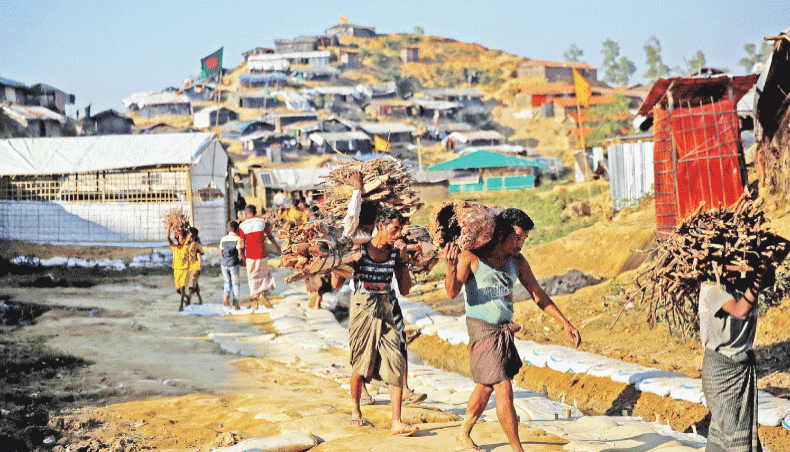Myanmar unwilling to take back Rohingyas to original places
Myanmar authorities are disinclined to take Rohingya returnees back to the original places from where they were forcibly displaced in military operations in Rakhine State.
The Myanmar authorities are planning to take Rohingyas on their return to newly constructed segregated villages, far away from their original houses and villages, Bangladesh officials said.
‘The Myanmar government has given no assurance of taking back the Rohingyas to their respective places of residence and villages,’ a senior Bangladesh official told New Age after a meeting of the joint working group of the two countries on Rohingya repatriation in Dhaka on May 17.
Taking the returnees from reception centres to places unknown to them would be a violation of the agreement signed between Bangladesh and Myanmar for facilitating return of Rohingyas, the officials said.
Myanmar has agreed to take necessary measures to restore normalcy in Northern Rakhine with encouraging the returnees ‘to return voluntarily and safely to their own households and original places or residence or to a safe and security place nearest to it of their choice,’ according to Article 2 of the Agreement on Return of Displaced Persons From Rakhine State signed on November 23, 2007.
Taking the returnees to unknown and isolated places would immediately curtail their scopes of movement, access to basic services and livelihood and avenues to reclaim their property, said an official, adding that it would eventually reduce sustainability of repatriation from Bangladesh.
Satellite images released by New York-based Human Rights Watch and Colorado-based DigitalGlobe, in October 2017, and February 2018 respectively, showed that the Myanmar government erased scores of villages using bulldozers. Rights groups described it as efforts to destroy evidence of crime scenes of mass atrocities conducted in military operations to drive thousands of ethnic minority Rohingyas into Bangladesh.
Foreign secretary M Shahidul Haque led the Bangladesh side in the joint working group meeting while permanent secretary at Myanmar foreign ministry Myint Thu led the delegation of the country.
At the meeting, Bangladesh stressed that the returnees should be taken to their place of origin at respective villages without much delay at reception centres.
A senior Bangladesh diplomat said that Myanmar wanted to start repatriation half-heartedly without creating conducive environment with fulfilling conditions mentioned in the report of the Advisory Commission on Rakhine State led by former UN secretary general Kofi Annan and the deals signed with Bangladesh.
The Bangladesh government was giving emphasis on creating an environment conducive for sustainable repatriation of Rohingyas to avoid recurrence of their crossing over border in any vulnerability.
About 7,00,000 Rohingyas, mostly women, children and aged people, entered Bangladesh fleeing unbridled murder, arson and rape during ‘security operations’ by Myanmar military in Rakhine, what the United Nations denounced as ethnic cleansing and genocide, beginning from August 25, 2017.
The ongoing Rohingya influx took the number of undocumented Myanmar nationals and registered refugees in Bangladesh to about 11,16,000, according to estimates by UN agencies and Bangladesh foreign ministry.
The two governments signed three instruments since November 23, 2017, for return of forcibly displaced Myanmar nationals sheltered in Bangladesh after October 2016, as the Rohingya exodus from Rakhine State continued.
The government also signed a memorandum of understanding with the UNHCR to facilitate voluntary, safe and dignified return of Rohingya people.
The Myanmar authorities cleared the return of about 1,000 of the 8,032 Rohingyas, on the list handed over by Bangladesh authorities on February 16.
News Courtesy: www.newagebd.net











